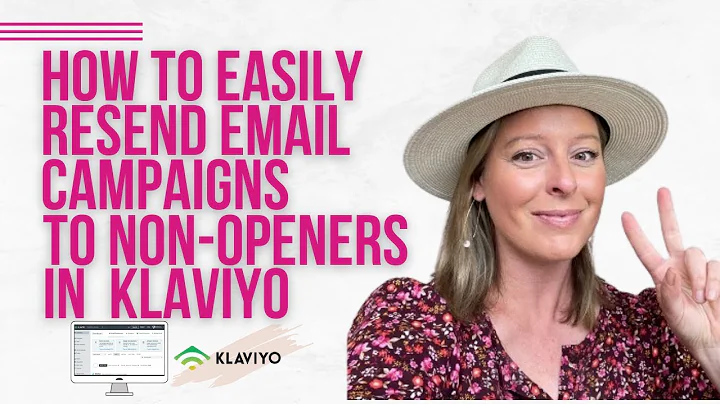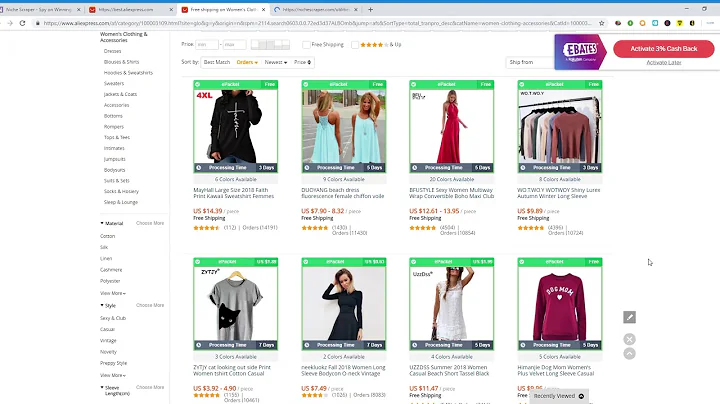Shopify vs Squarespace: The Ultimate eCommerce Builder Showdown
Table of Contents:
- Introduction
- Background of Shopify and Squarespace
- Pricing options
- Design comparison
- Features and functionality
- Ease of use
- Sales features
- Conclusion
- FAQs
Which Website Builder Should You Choose: Shopify or Squarespace?
Introduction:
When it comes to building a website, Shopify and Squarespace are two dominant players in the industry. However, choosing between these two platforms can be challenging, as they have different strengths and features. In this article, we will compare Shopify and Squarespace in various categories to help you decide which one is better suited for your specific needs. Whether you are a personal brand, an online store, or a fundraiser, we will analyze the key factors that can influence your decision.
Background of Shopify and Squarespace:
To understand the intent and focus of Shopify and Squarespace, it's important to delve into their histories. Squarespace was founded in 2003 as a website builder, initially catering to general website needs. Over time, it has evolved to offer features such as podcast hosting, blogging, multi-page websites, and e-commerce functionality. Squarespace is a well-rounded option for building various types of websites.
On the other hand, Shopify was founded in 2006 with a hyperfocus on e-commerce. It exclusively caters to merchants and individuals looking to sell products online. While Squarespace offers a broader range of tools, Shopify is designed to be scalable and focused on e-commerce functionality.
Pricing options:
Pricing is a crucial factor when choosing a website builder. Shopify's pricing is tiered and starts at $29 per month for its base plan, reaching up to $299 per month for its most advanced plan. The higher tiers offer lower transaction fees and additional features. Squarespace, with its emphasis on versatility, offers plans starting at $12 per month for general website building. Its e-commerce plans start at $26 per month, with the most expensive plan being $40 per month. Squarespace's plans include domain registration for the first year.
Design comparison:
Squarespace stands out when it comes to design options, offering over 110 themes to choose from. These themes cover various categories, including online stores, and they are included in your Squarespace subscription. Shopify, on the other hand, provides nine free themes and 72 paid themes. While Shopify has a more limited selection, many paid themes are available, offering a wider range of customization options.
Features and functionality:
In terms of features and functionality, Shopify outshines Squarespace due to its extensive library of apps and plugins. Shopify's app store provides a vast selection of add-ons, offering functionalities like dropshipping, marketing tools, payment options, and inventory management. Squarespace, although not as robust in terms of app integrations, has its essential features natively built into the platform. As a result, Squarespace is a better choice for individuals who prefer an all-in-one solution.
Ease of use:
When it comes to ease of use, Squarespace takes the lead. Its user-friendly interface and intuitive design make it relatively easy to build professional-looking websites without much technical knowledge. Squarespace's all-in-one approach simplifies the website creation process. In contrast, Shopify, with its extensive functionality and app integrations, is more complex to navigate, as you may need to search for the right apps to customize your website.
Sales features:
In terms of sales features, Shopify offers more powerful e-commerce capabilities. It supports a wider range of payment options, including Shopify Payments, Amazon Pay, Stripe, PayPal, and more. Shopify also facilitates selling across multiple channels, such as Instagram and Facebook. Squarespace, while supporting essential sales features like defining shipping zones and label printing, has a more limited selection of payment options.
Conclusion:
Choosing between Shopify and Squarespace depends on your specific requirements. If your primary objective is to sell products online, Shopify's e-commerce-focused functionality and extensive app store make it the better choice. However, if you're looking for a well-rounded website with relatively fewer products to sell, Squarespace's versatile designs and inclusivity of essential features can be a more suitable option. Alternatively, WordPress with WooCommerce is a viable choice for those seeking a mix of powerful selling features and overall website customization.
FAQs:
Q: Can I sell products using Squarespace?
A: Yes, Squarespace offers e-commerce functionality, allowing you to sell products on your website. However, it is best suited for those with a smaller inventory.
Q: Is Shopify more expensive than Squarespace?
A: Shopify generally offers higher-priced plans compared to Squarespace. However, the additional cost comes with comprehensive e-commerce features and scalability.
Q: Which platform is easier to use, Squarespace, or Shopify?
A: Squarespace is typically considered easier to use due to its user-friendly interface and all-in-one solution. Shopify, while more complex, offers more extensive customization options.
Q: Can I switch from Shopify to Squarespace or vice versa?
A: Yes, it is possible to switch between platforms. However, the process may require manual migration of your content and reconfiguration of settings and design elements.
Q: Which platform has better customer support?
A: Both Shopify and Squarespace are known for their responsive and reliable customer support.


















